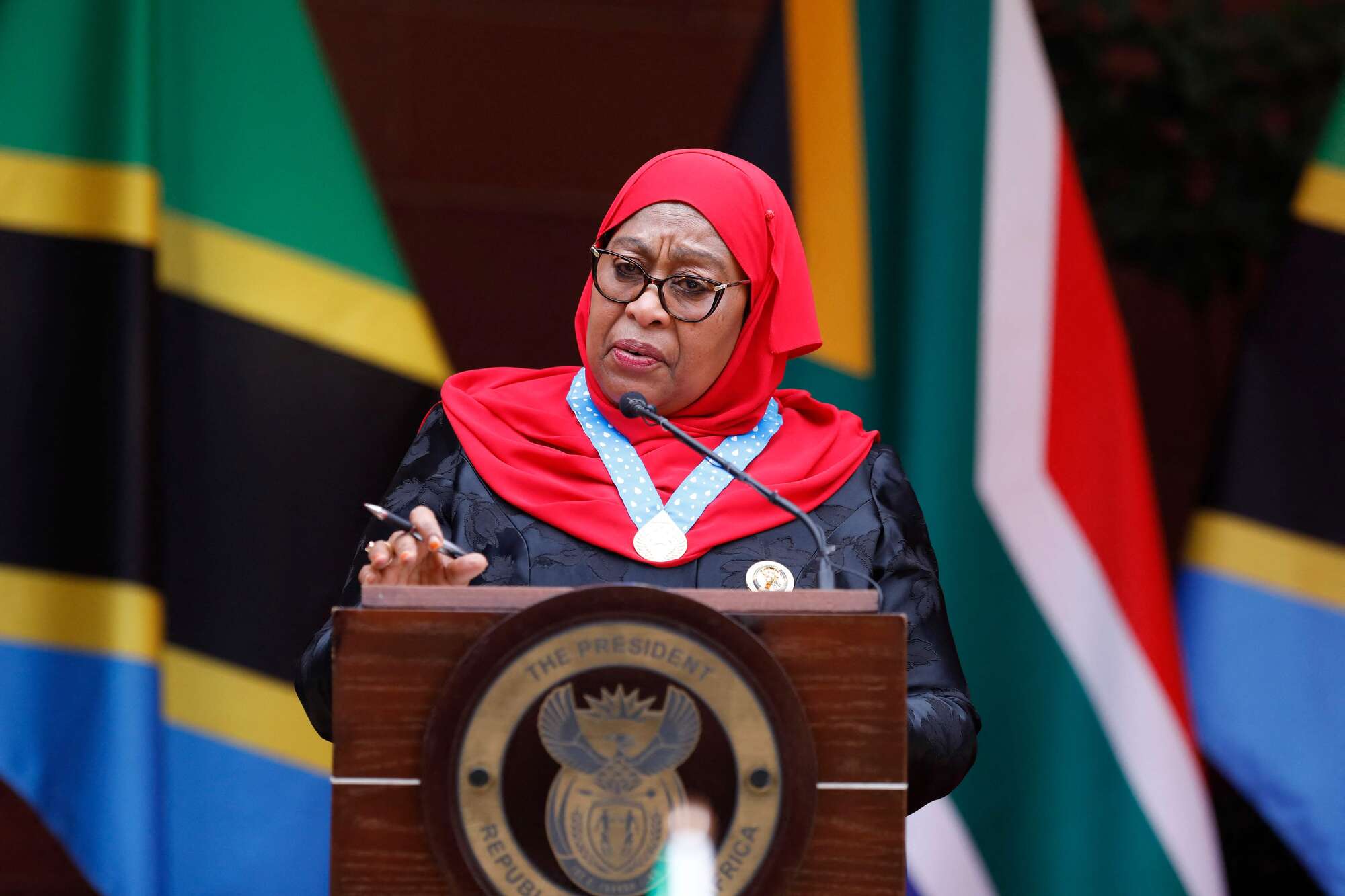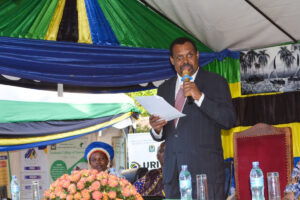Dar es Salaam. In a bid to bolster trade relations and enhance economic cooperation, Tanzania and Kenya have recently reached a significant agreement to address non-tax trade barriers.
The accord aims to streamline charges, fees, taxes, and regulatory procedures affecting trade between the two nations.
The commitment was formalized during the 8th joint trade committee meeting held in Kisumu, where the Deputy Minister of the Ministry of Foreign Affairs and East African Cooperation of Tanzania, Mr Stephen Byabato and Kenya’s Cabinet Secretary of the Ministry of Investment, Trade and Industry, Ms Rebecca Miano, played pivotal roles.
Mr Byabato emphasized the positive impact of the longstanding bilateral relationship, attributing it to socio-economic development and the well-being of the populace. He highlighted the signing and exchange of the Joint Declaration of Agreement during the meeting as a significant step forward.
Specifically addressing trade barriers, Mr Byabato underscored the importance of ensuring that laws and regulations in both countries do not hinder business activities for entrepreneurs from either side. Notable strides have already been made, with recent removals of bans on key imports and exports between the two nations. These include lifting restrictions on importing tea and Konyagi alcohol into Tanzania and exporting timber to Kenya.
He stressed the pivotal role of Tanzania and Kenya within the East African Community (EAC) and emphasized the untapped potential for increased intra-EAC trade.
He highlighted non-tariff barriers (NTBs) as primary obstacles to realizing this potential, calling for concerted efforts and commitments to address them.
Reiterating Tanzania’s dedication to fostering constructive engagements within the EAC, Mr Byabato noted ongoing efforts to resolve NTBs through joint trade committee (JTC) meetings.
He provided insights into the progress made during previous sessions, with a notable resolution of several issues and a commitment to address remaining barriers by June 2022.
“It is against this healthy and cordial relationship that our heads of state engage in high-level consultation with the aim of ensuring that trade between our countries remains undisrupted and optimized, he said.
Drawing attention to trade data, Mr Byabato noted fluctuations in trade volumes between Tanzania and Kenya, signaling the need for sustained efforts to address NTBs and enhance competitiveness.
He stressed the importance of implementing agreed-upon decisions to strengthen the credibility of bilateral engagements and foster continued growth in trade relations.
In response, Ms Miano expressed optimism about the longstanding friendship and cooperation between the two countries. She highlighted the positive impact of previous JTC meetings and expressed confidence in the resolution of outstanding trade issues.
She echoed the sentiments of her Tanzanian counterpart, emphasizing the potential for enhanced trade to drive social and economic development in both nations.
She expressed hope for a fruitful outcome from the latest JTC meeting, paving the way for more open trade and deeper collaboration between Tanzania and Kenya.
As Tanzania and Kenya continue to forge closer ties and navigate the complexities of regional trade dynamics, the recent agreement signifies a significant step towards fostering a conducive environment for businesses and promoting mutual prosperity.















